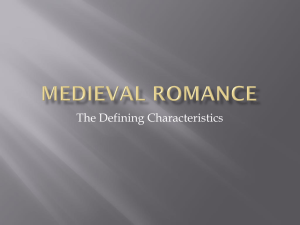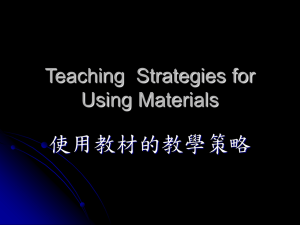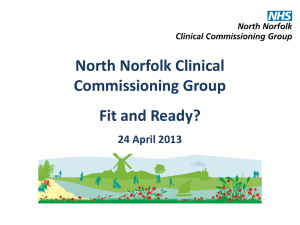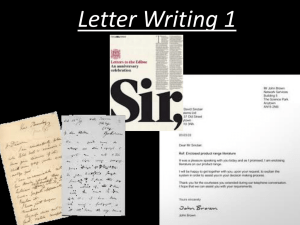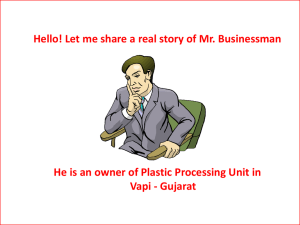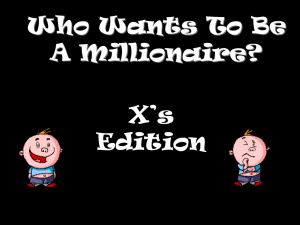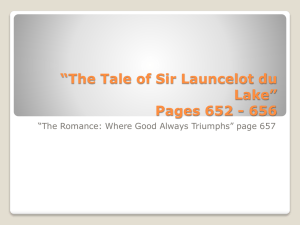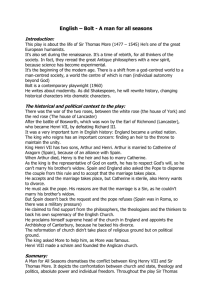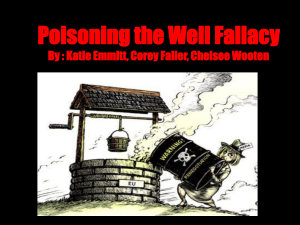A Man for All Seasons - exam revision
advertisement
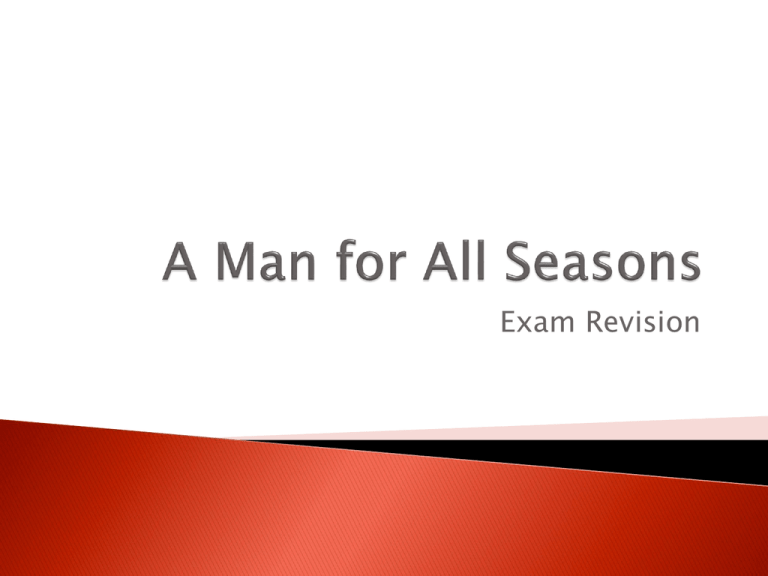
Exam Revision Two act play, second act takes place two years after the first Act 1 – presents More as a man of substance, but shows the mounting pressure on him Act 2 – Sir Thomas divested of his chains of office, he is imprisoned and then executed. Meanwhile, Rich steadily rises in status as he succumbs to the wishes of Cromwell. Most obviously, Bolt employs the ‘alienation effect’ and this is seen clearly through the character of the Common Man. The Common Man’s various roles means that the audience cannot remove themselves from the actions of the play, rather they have to engage with the proceedings on an intellectual level. The play is presented as a deliberate construct of the writer. Bolt uses a range of metaphors to vividly illustrate his points: egs To illustrate Roper’s changeability: “Now let him think he’s going with the current and he’ll turn around and start swimming in the opposite direction’ “If Wolsey fell, the splash would swamp a few small boats like ours” There is much irony employed by Bolt in the play: Eg. “You’re a constant regret to me, Thomas. If you could just see facts flat on, without that moral squint; with just a little common sense, you could have been a statesman.” Bolt also employs ‘dramatic irony’, where the audience has a greater awareness of the characters’ situation than the characters themselves: Egs More: “I truly believe no man in England is safer than myself.” Rich: “I’m lamenting. I’ve lost my innocence.” Rich: “Employ me… I would be steadfast.” He is presented as someone who is intelligent, witty and someone who loves his family. He is presented as morally upright and a man of integrity Norfolk says of him that he was the “only judge since Cato who didn’t accept bribes! When was there last a Chancellor whose possessions after three years in office totalled one hundred pounds and a gold chain” He believes that one should regard their conscience as integral to maintaining their selfhood. They should not act according to what is practical and should not merely accept political realities. More tells Wolsey: “when statesmen forsake their own private conscience for the sake of their public duties… they lead their country by a short route to chaos.’ He believes absolutely in the capacity of the law to provide him protection. His belief in the law is so strong that he would “give the Devil the benefit of law”. It is only towards the end of the play that he recognises his vulnerability and More would rather not inhabit a world which cannot protect an innocent man: “I do none harm, I say none harm, I think none harm. And if this be not enough to keep a man alive, in good faith I long not to live.” Ironically it is a perversion of the law (through Rich’s perjury) which ultimately leaves him unprotected. Embodies the philosophy that “every man has his price” Most prominent figures have not taken an interest in him. He cannot get past the Cardinal’s servants and Norfolk graces him with “one half of a Good Morning delivered at fifty paces” Sir Thomas significantly “points him out” to Norfolk, but does not ‘recommend him’. Rich’s vanity, ambition and desire for the trappings of power are illustrated in his early comment to More: “I want a gown like yours” More recalls this later: “That’s a nice gown you have, Richard.” Note the stage directions for Rich: “He is now splendidly official, in dress and bearing; even Norfolk is a bit impressed” Despite Rich’s elevation to Attorney-General for Wales, More is still able to highlight what he has lost in the process: “For Wales? Why, Richard, it profits a man nothing to give his soul for the whole world… But for Wales!” Interestingly though Rich is the only man who does profit from his actions. The other main players were sentenced to death for High Treason, but Richard Rich ‘became a Knight and Solicitor-General, a Baron and Lord Chancellor, and died in his bed.” Set up as a parallel to Sir Thomas More More is scornful of him, yet says “he’s a pragmatist – and that’s the only resemblance he has to the Devil, son Roper; a pragmatist, the merest plumber” Cromwell sees himself as “The King’s Ear”… stating that “When the King wants something done, I do it.” It is for him a job of ‘administrative convenience’. He is ruthless as demonstrated by his holding Rich’s hand in a candle flame. He sees the law as a tool: “It must be done by law. It is just a matter of finding the right law. Or making one.” He sees that More’s intransigence may lead to his own downfall: “if I bring about More’s death – I plant my own, I think.” He is the ultimate pragmatist who does anything to remain unscathed. He represents that which is common to all of us and we are meant to see an element of ourselves in him: “I’m breathing… Are you breathing too?... If we should bump into one another, recognise me.” His many roles are meant to reveal his changeability and the ease with which he compromises his values in order to stay alive (he is, in effect, “the live rat”). eg although he reluctantly dons the cap of ‘Foreman of the Jury’ (“Oh no, sir”), when asked if the cap fits, he says “Yes, sir”. He is astute and aware of the vagaries of the time and states: “When I can’t touch the bottom I’ll go deaf blind and dumb.” To maintain integrity one must remain immune to corruption Clear distinction is drawn between those who have integrity and those to lack it. Eg. More remains true to his convictions even when extreme pressure is placed on him, whereas Rich is presented as weak and uncertain. Some may see More’s actions as foolish: The Common Man describes his “wilful indifference to realities which were obvious to quite ordinary contemporaries”. His actions certainly bring hardship to his family, yet even Alice who fears she might hate him when he dies says “I understand you’re the best man that I ever met or am likely to” More has absolute faith in the law; Roper suggests it is his ‘god’ Roper is prepared to use the law to put away someone like Rich, whereas More believes the law must offer everyone equal protection. More makes a distinction between ‘what’s right and the law’: “I know what’s legal not what’s right.” More uses his knowledge to successfully claim that his silence implies consent, rather than the opposite. Even at the time of his execution, his concern is still for correct legal judgement. He says to the lady who offered him a bribe: “…if I had to give sentence now I assure you I should not alter it.” Despite claims by Cromwell that “Sir Thomas is a man” and, by implication that he has his price, More proves otherwise. Sir Thomas has that “little…little, area” where he must rule himself. More cannot even lie to himself as urged by Meg. Rich, however, parts with his principles with ease. Similarly, Norfolk acts against More to retain his position and good favour with the King. The reason that More cannot part with his conscience is essentially because he feels that by doing so he loses himself: “When a man takes an oath, Meg, he’s holding his own self in his own hands. Like water. (He cups his hands) And if he opens his fingers then – he needn’t hope to find himself again.”

